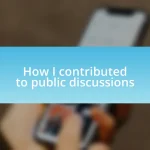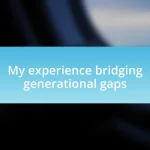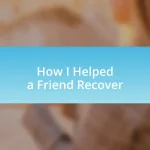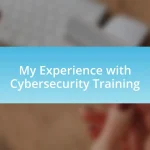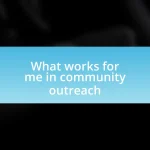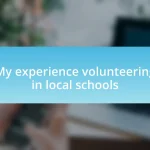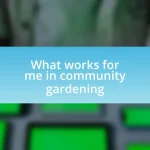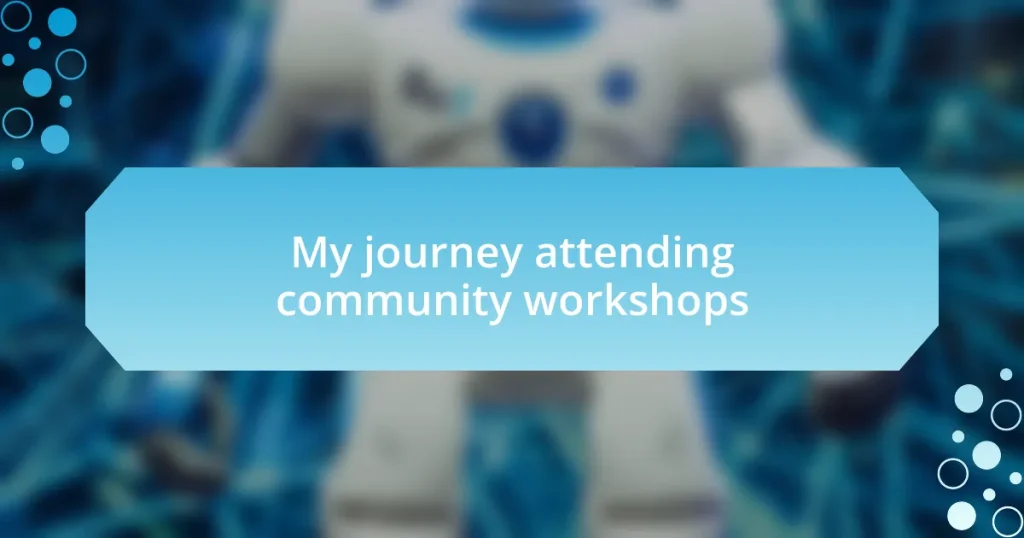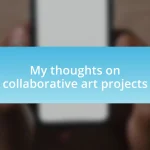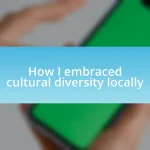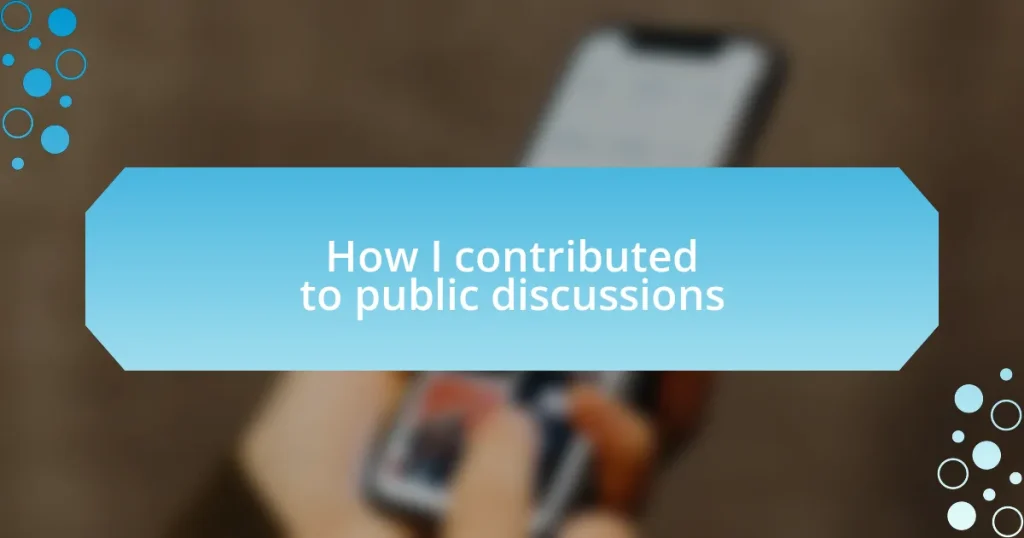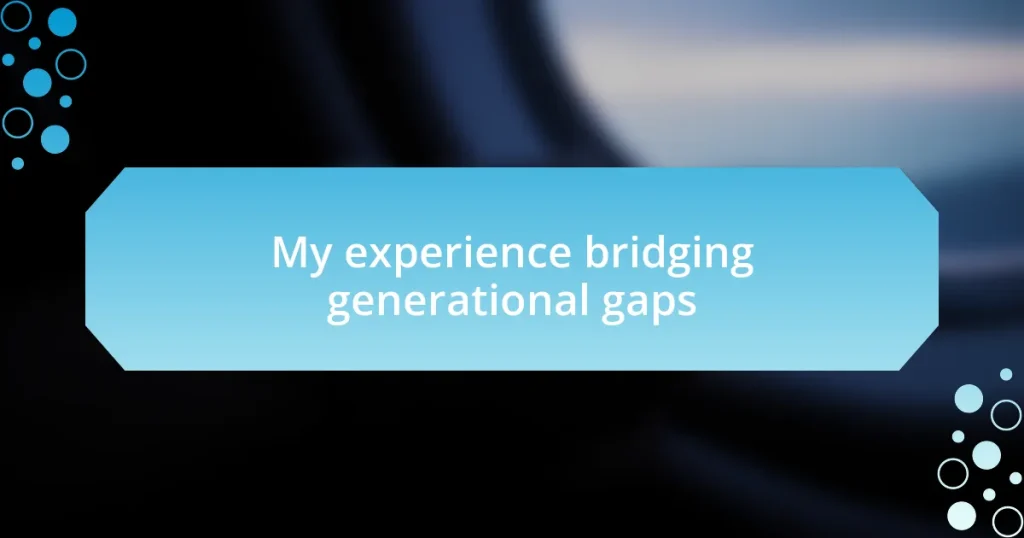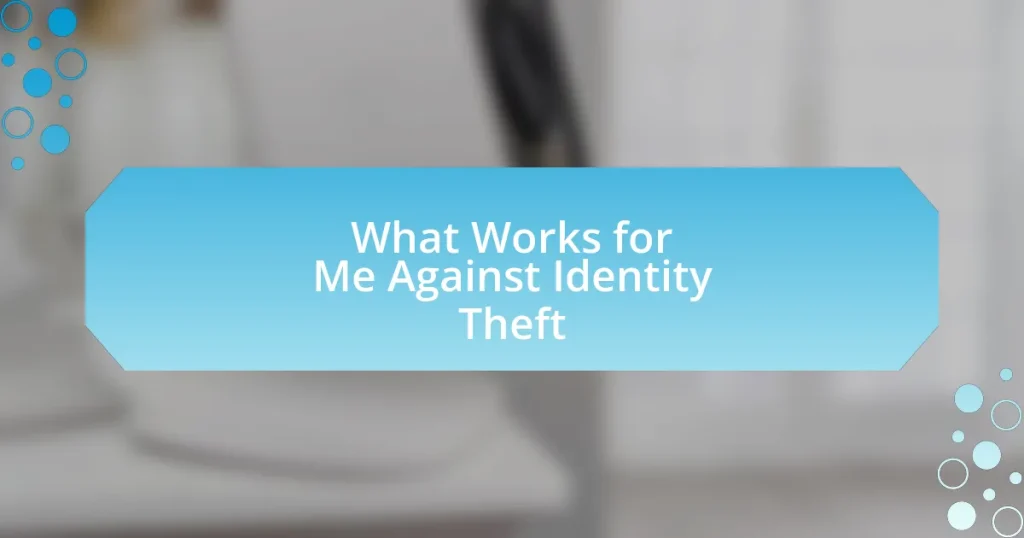Key takeaways:
- Community workshops foster skill development, networking, and the sharing of diverse perspectives, promoting personal and professional growth.
- Engaging with workshop leaders and fellow participants enhances the learning experience, encouraging collaboration and creativity.
- Preparation and setting expectations can alleviate anxiety for first-time participants, making for a more fulfilling experience.
- Reflecting on workshop experiences, including feedback received, can deepen understanding and inspire personal development through creativity.
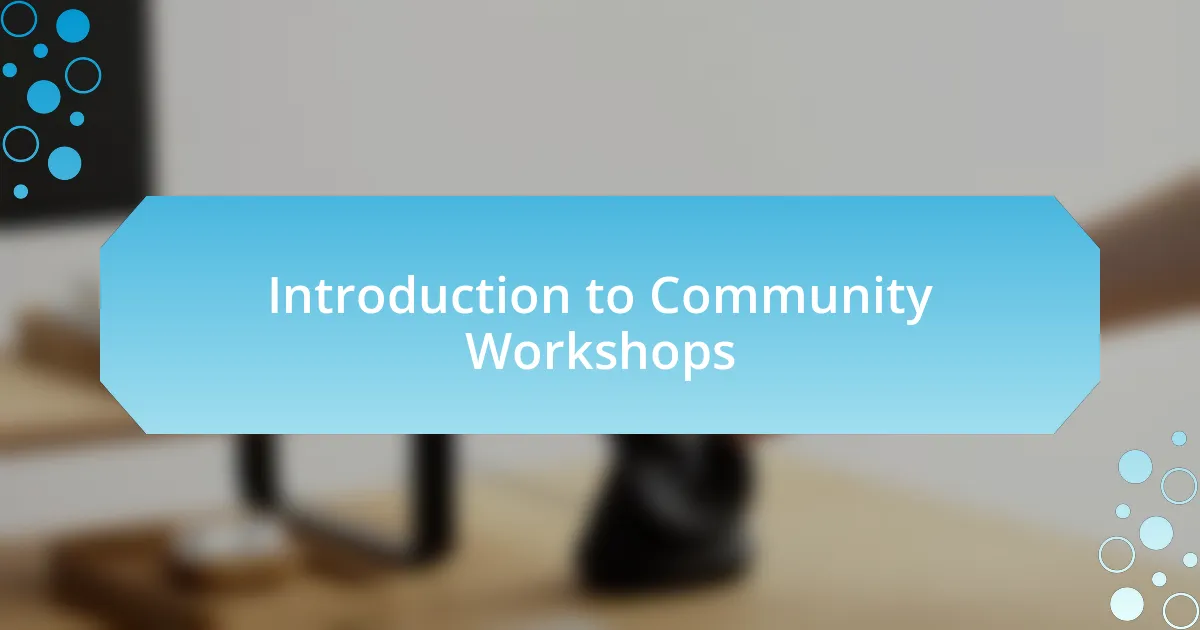
Introduction to Community Workshops
Community workshops are vibrant hubs of learning and connection, often filled with individuals eager to share their passions or skills. I still remember walking into my first workshop, a bit nervous yet excited, unsure of what to expect. The warm smiles and friendly chatter instantly eased my apprehensions, and it made me wonder—how many others feel the same way when they take that first step?
These workshops serve not only as platforms for skill development but also as a means of building community. I’ve attended sessions that ranged from gardening to digital marketing, and each one fostered an environment where collaboration thrived. It struck me how sharing a common interest can turn strangers into friends, sparking conversations that extend beyond the confines of the workshop.
Every community workshop I’ve attended has opened my eyes to the wealth of knowledge that exists around me. I often reflect on moments where I discovered how much I had to learn from others, regardless of their age or background. Isn’t it incredible how much wisdom can be exchanged in a single room, turning participants into teachers and learners alike?
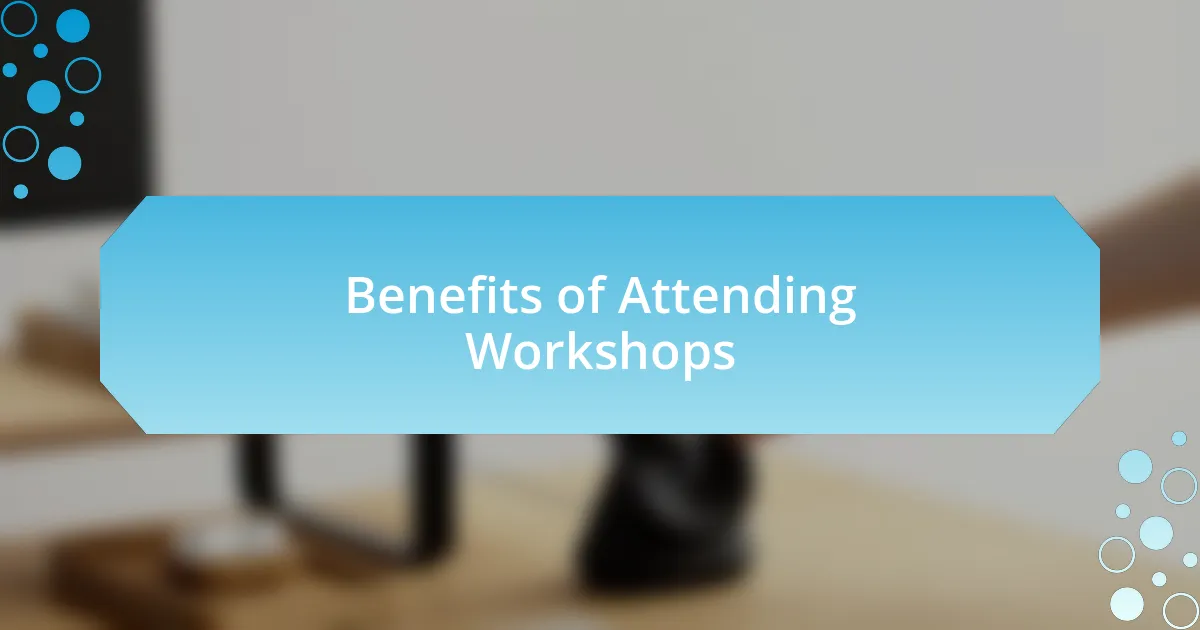
Benefits of Attending Workshops
Attending workshops has immensely enriched my life, providing a space to grow both personally and professionally. I remember walking away from a photography workshop not just with new techniques but also with a sense of accomplishment. The collective energy in the room nurtured creativity, allowing me to explore ideas that I didn’t even know I had.
Here are some key benefits I have experienced:
- Skill Development: Workshops often focus on specific skills, enhancing both knowledge and competence.
- Networking Opportunities: Meeting like-minded people often leads to invaluable connections and potential collaborations.
- Diverse Perspectives: Engaging with peers from various backgrounds broadens one’s viewpoint and stimulates creative thinking.
- Hands-On Experience: Practical exercises reinforce learning, making concepts easier to grasp and apply.
- Supportive Environment: The collaborative spirit generates a community where individuals encourage each other to step out of their comfort zones.
These benefits are clear reminders of why I cherish every workshop I attend. Each experience builds on the last, contributing to my personal growth in ways I never anticipated.
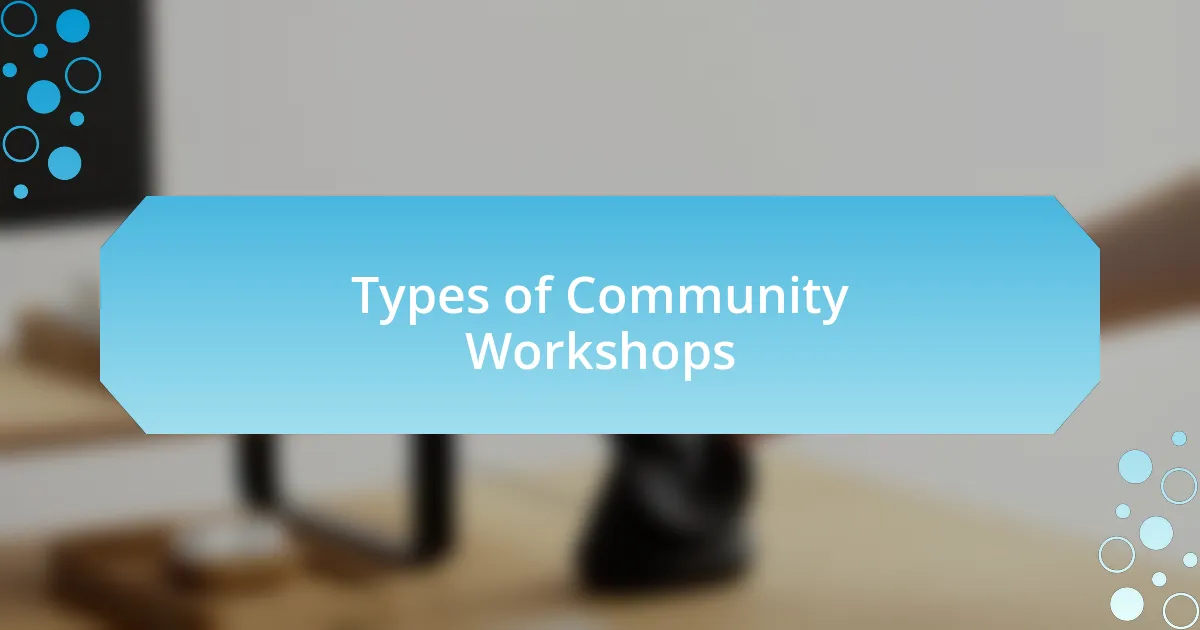
Types of Community Workshops
When diving into the types of community workshops, I’ve found they typically revolve around practical skills, creative arts, and personal development. For instance, I once attended a culinary workshop that transformed my approach to cooking. The hands-on experience of creating dishes alongside fellow food enthusiasts was not just educational but also a delightful social outing.
In contrast, creative arts workshops often focus on areas like painting, photography, or crafting. I recall a vibrant painting workshop where the instructor encouraged us to express our emotions on canvas. The feeling of working side by side with others, sharing tips, and celebrating each other’s creations fostered a sense of belonging that is hard to replicate elsewhere.
Lastly, personal development workshops cover subjects like public speaking, leadership, and wellness strategies. One memorable experience for me was participating in a public speaking workshop. It pushed me out of my comfort zone and allowed me to connect with others facing similar challenges. The supportive atmosphere meant I walked away feeling empowered and more confident in my abilities.
| Type of Workshop | Focus Area |
|---|---|
| Culinary Workshops | Cooking techniques, food culture |
| Creative Arts Workshops | Visual arts, music, crafting |
| Personal Development Workshops | Soft skills, self-improvement |
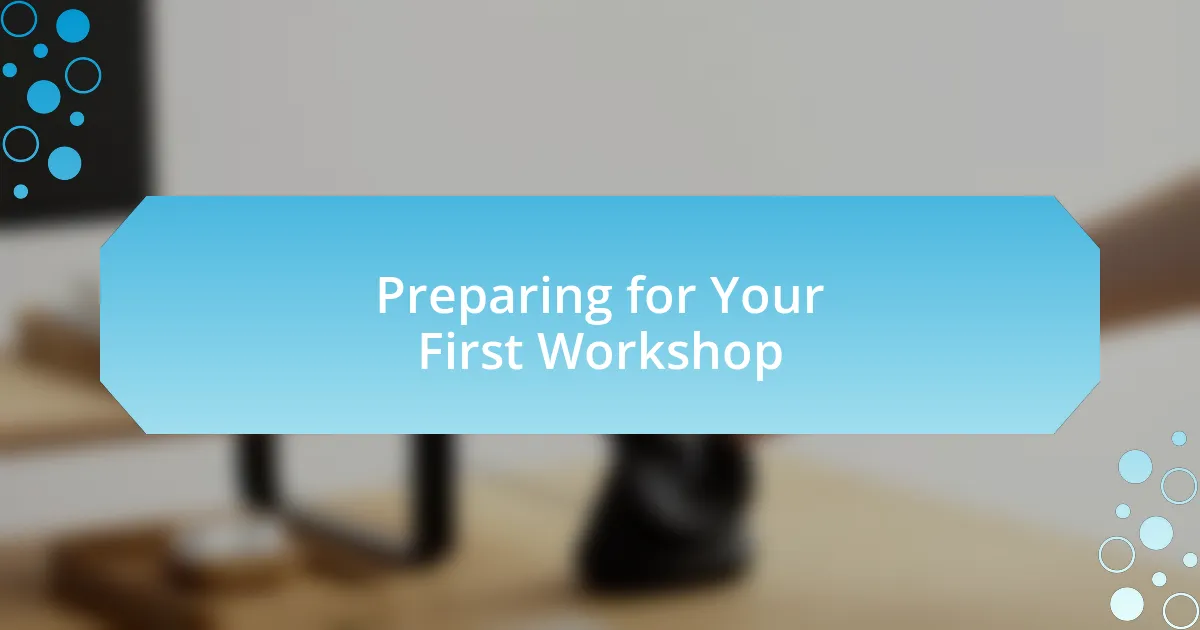
Preparing for Your First Workshop
Preparing for your first community workshop can be both exciting and a bit nerve-wracking. I vividly remember the feelings that surged through me as I gathered my supplies before attending a new workshop focused on digital photography. Did I have everything I needed? I found that having my camera ready along with questions to ask made me feel more confident walking in.
Setting expectations can also ease some anxiety. When I attended my first crafting workshop, I didn’t realize how important it was to embrace a mindset of experimentation. I planned to create a perfect piece but ended up enjoying the process of trial and error much more. It taught me the value of creativity over perfection and the joy in connecting with others through shared experiences.
Lastly, consider reaching out to the workshop facilitator ahead of time. I did this before a cooking workshop, and it really paid off. Not only did I get a feel for what to expect, but it also made me feel more involved with the community before I even set foot in the kitchen. Think about what you want to gain from the experience, and don’t hesitate to ask questions—it can lead to meaningful conversations right from the start.
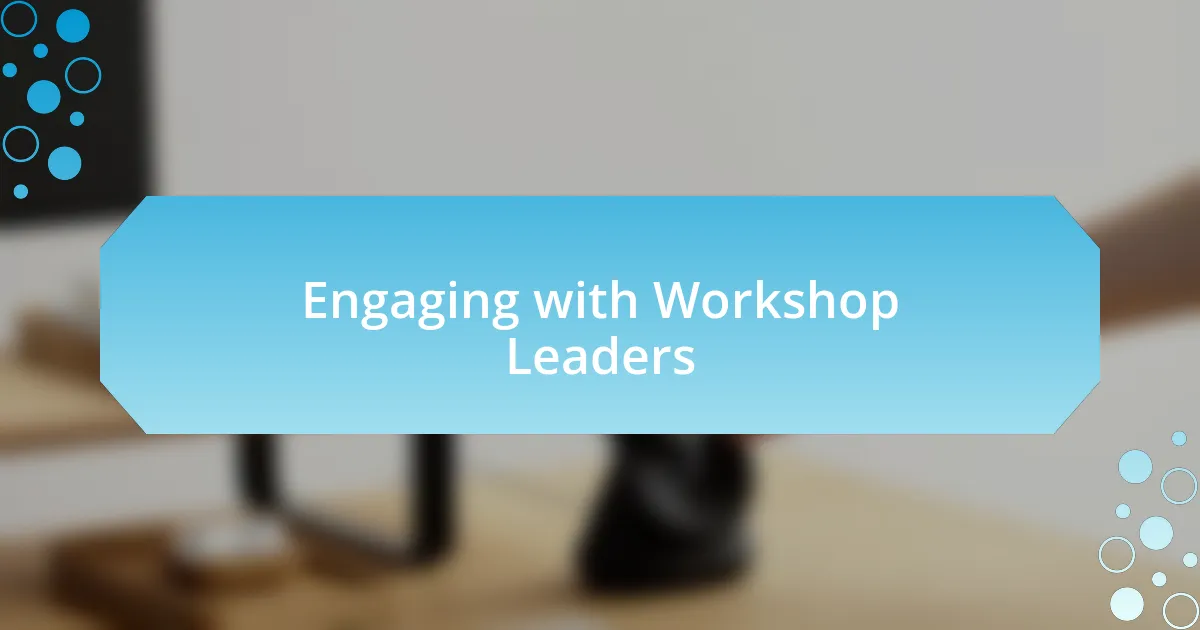
Engaging with Workshop Leaders
Engaging with workshop leaders can truly enhance your experience. I remember during a pottery workshop, the instructor was not only knowledgeable but also welcoming. I felt comfortable enough to ask about alternative techniques, and our conversation led to some valuable insights that I still use today. What impact could a simple question have on your own learning journey?
It’s fascinating how the energy of a workshop can shift based on the connection with the leader. I found myself drawn into a more intense discussion during a writing workshop when I shared my struggles with writer’s block. The facilitator not only provided tips but also encouraged the group to share their personal stories, which created an environment rich in support and authenticity. How often do we leave rooms feeling more connected than when we entered?
I’ve also noticed that actively participating in discussions with workshop leaders often sparks inspiration. At a recent gardening workshop, I shared my passion for sustainable practices. This led to a deeper conversation about organic methods, and I walked away with newfound ideas. Those moments of shared enthusiasm can ignite creativity, don’t you think? Engaging deeply with those leading the workshops is as rewarding as the skills you learn.
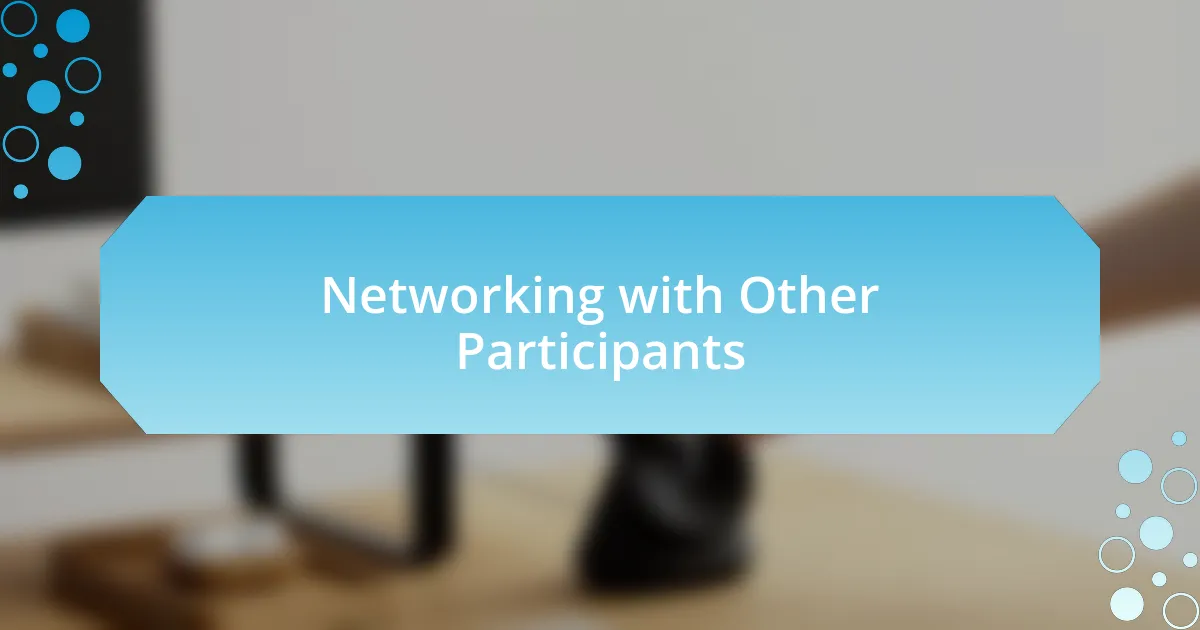
Networking with Other Participants
Networking with other participants can be one of the most rewarding aspects of attending community workshops. I recall sitting next to a fellow participant during a cooking class; we struck up a conversation over shared culinary interests. By the end of the session, we not only exchanged recipes but also made plans to collaborate on a dinner party, illustrating how a simple chat can lead to lasting connections.
What struck me during a photography workshop was the diverse backgrounds of the participants. Each one brought their unique perspective to the table. I found it fascinating to listen to a retired teacher share her experiences with capturing candid moments in her travel photos, which inspired me to think about storytelling through my images in a new way. How often do we overlook the wealth of knowledge sitting right next to us?
Sometimes, it’s the informal exchanges that leave the biggest mark. After a creative writing workshop, a small group gathered outside, sipping coffee and exchanging feedback on each other’s pieces. I felt a rush of inspiration as we all delved into themes and poetic forms, and I realized how vital it is to create a network of supportive peers. Isn’t it incredible to think that these connections can lead to collaborative projects later? Networking in these settings is truly about building a community that nurtures growth.
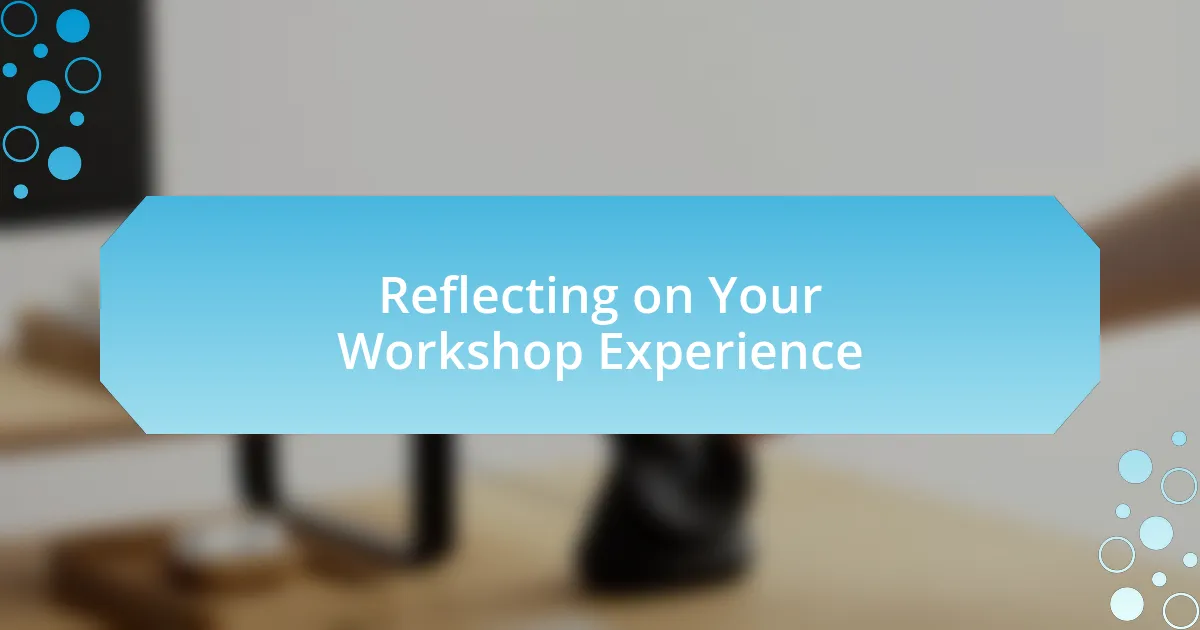
Reflecting on Your Workshop Experience
Reflecting on my workshop experiences, I often revisit the moments that truly shaped my learning. For instance, in a recent pottery workshop, as I shaped the clay under my fingertips, I felt a sense of calm wash over me. It made me realize how therapeutic the creative process can be, prompting me to ask: how often do we allow ourselves the space to feel such peace in our daily lives?
As I process these experiences, I also consider the feedback I received. During a dance workshop, a fellow participant pointed out a technique I hadn’t thought about before. His words not only encouraged me to refine my movements, but they also ignited a deeper passion within me. I began to wonder: isn’t it fascinating how feedback from others can unlock new potentials we didn’t even know we had?
It’s also interesting to reflect on the emotional rollercoaster workshops can evoke. At a recent painting session, I found myself frustrated when my colors didn’t blend as I envisioned. But as I stepped back, I embraced the imperfection, realizing that art, much like life, thrives on unexpected turns. Isn’t it essential to accept these imperfections and learn from them in our creative journeys?

